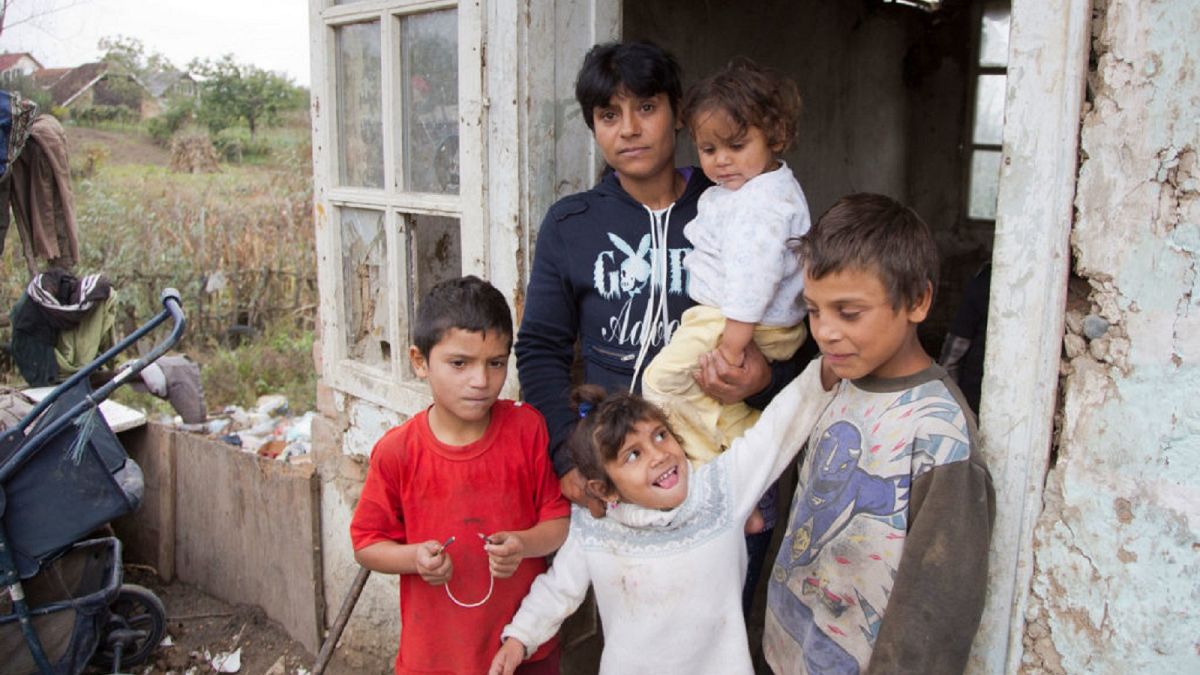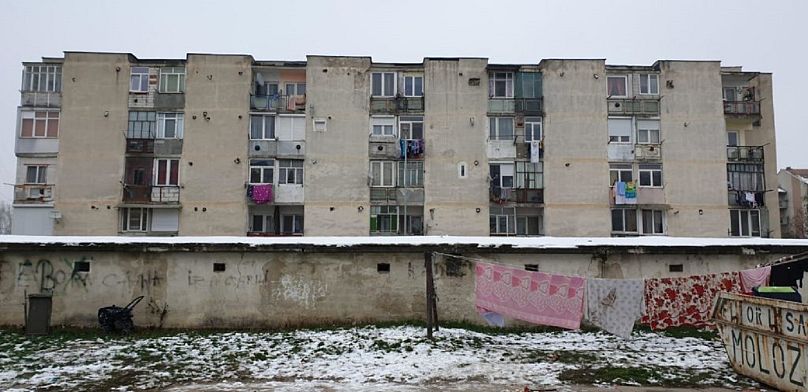Without access to technology to take part in online classes, Roma children are disproportionately being forced to abandon their education during lockdowns - and with it, their best chance at improving their futures.
The COVID-19 pandemic means huge ongoing challenges in terms of schooling for children all over Europe. Among the worst affected in Europe are Roma children. Many are experiencing a complete halt in an education that is their best chance at breaking the historic marginalisation of this ethnic group. Antigypsyism was recognised this month by the European Commission as a root cause of discrimination and social exclusion in the new EU Roma Strategic Framework.
As a second wave of COVID-19 infections affects Europe, some 3,014 schools in Romania (at the time of publication) have gone completely online and 4,894 are operating in a hybrid fashion, meaning the students must follow courses online half of the week. But the vast majority of Roma children do not have the electronic devices to ensure they can consistently join online courses or even join at all, a recent study conducted by Caritas Romania has found.
Although authorities promised months ago to ensure that all children have the necessary devices to join the online educational system if the need were to arise in the autumn, the distribution of devices has not reached children from vulnerable groups, of which the Roma constitute a majority.
Romanian schools conducted online learning via internet from March to June which took different forms. Teachers were either distributing worksheets or homework via messenger applications or in person, and the children had to work with the worksheets on their own, without assistance from teachers.
A recent survey, conducted by Caritas Romania, with some 400 children who attend the organisation’s ‘learning centres’ that provide academic support to students from marginalised groups, showed that just 3 per cent of the Roma children participated in online lessons during the March-June lockdown. This is lower than the already worrying 12 per cent found to be the average for children of other marginalised groups. The survey was conducted with children attending 16 Caritas’ ‘learning centres’ in the regions of Transylvania, Moldova and Banat.
The study also found that only 1 per cent of Roma children have a computer at home and 3 per cent have a tablet, which explains the fact that 54 per cent turned to their parents’ mobile phones to receive worksheets and homework from the teachers via messenger application and to send in photos of the homework to the teachers. This compares with 43 per cent as the average for children of other marginalised groups, where 7 per cent have a computer at home and 6 per cent a tablet.
Some 79 per cent of children from Roma families said they belong to families of five to six members who live in accommodation composed of only one or two rooms, which does not provide enough space to study at home effectively; and only 34 per cent of these families have an income from formal employment, meaning many make a living from irregular informal activities.
Probably for that reason, 38 per cent of Roma children had to work by themselves on the worksheets provided by teachers, versus 19 per cent in the case of other marginalised groups. Younger pupils, in particular, who have to learn the basics in such a way potentially face long-lasting deficiencies affecting their whole school career. A full 27 per cent of the Roma children in the 6-8 age group and 54 per cent of the children in the 9-11 age group had to rely on this learning approach.
To change this bleak outlook, all children should be allowed to attend lessons in person and school authorities should guarantee the necessary protection to all children. When physical teaching in schools is absolutely impossible, authorities must ensure high-level participation in online learning among children of all backgrounds, including those in vulnerable situations and regardless of ethnicity.
The authorities should provide electronic devices to children from vulnerable families and facilitate possibilities for children and their parents to receive assistance in both using the electronic devices and understanding the topics and the tasks of the online teaching. Authorities must also train teachers in the technical and pedagogical skills necessary for online schooling.
Civil society organisations already working with children from vulnerable families could play an important role in assisting these children in times of the pandemic. Civil society organisations in close cooperation with local school authorities should engage in bringing children back to school in order to avoid early school drop-outs. Local school authorities and administrations should collaborate with civil society organisations, including by providing funding.
It is still time to prevent this looming disaster. However, preventing it would require acknowledging the problem and implementing solutions now. If not, the EU objective to increase effective equal access to quality inclusive mainstream education by 2030, as described in the Roma Framework, will again miss the mark.
Children from vulnerable families cannot afford a halt in their education, the best chance they have for enjoying a better future than that of their parents - nor can society sit by and allow this.
- Thomas Hackl is an expert on Roma inclusion at Caritas Europa. Stephan Müller is Advisor to the Central Council of the German Sinti and Roma
_____________
Are you a recognised expert in your field? At Euronews, we believe all views matter. Contact us at view@euronews.com to send pitches or submissions and be part of the conversation.

